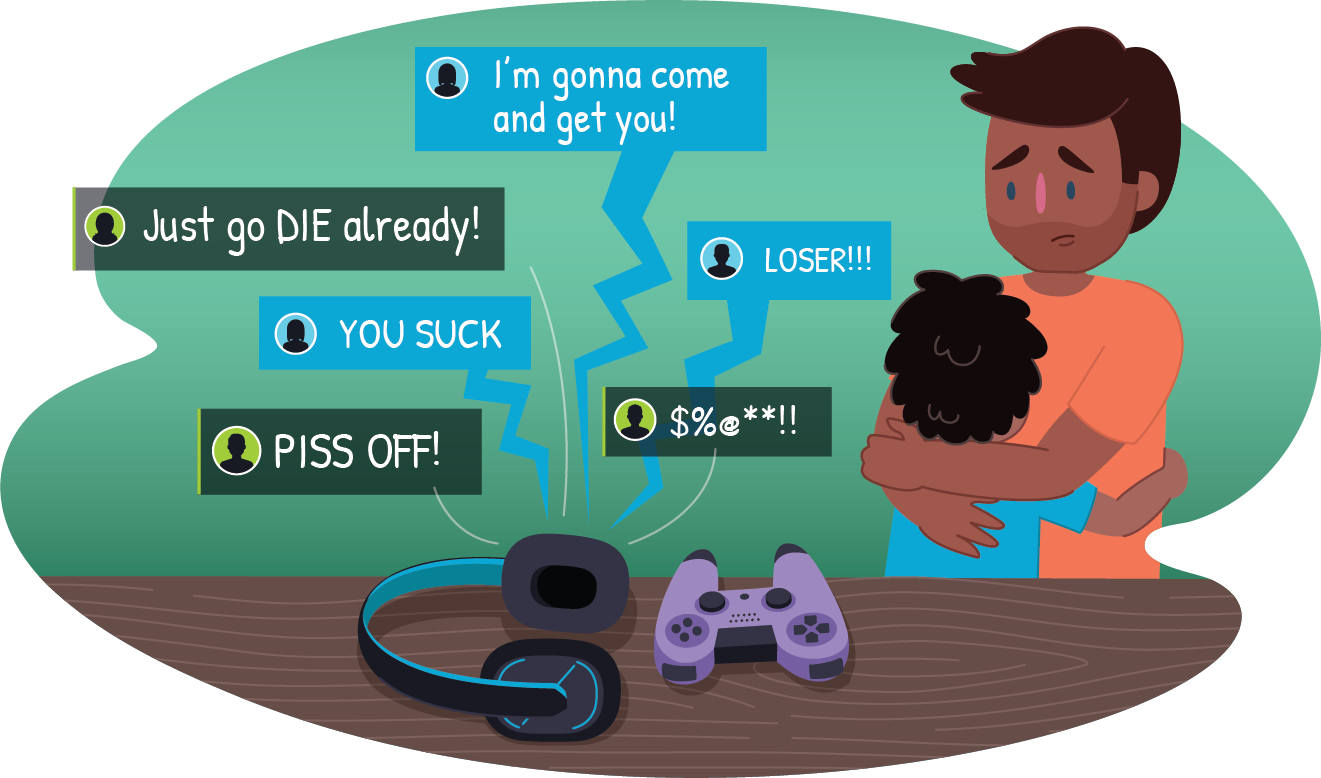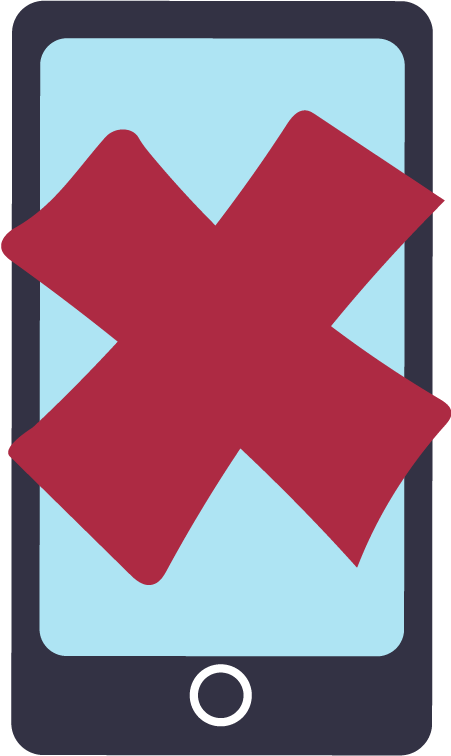Should I be worried about gaming addiction?
Worried that gaming is becoming a problem for your child? Here’s ...
READ MEBullying within online gaming can be a real issue. Know the signs and what you can do to help prevent it.

Gaming can play a positive role in your child’s social life. It’s a space that can help them build social skills through interactivity with other players.
They can connect, engage and compete with others as well as develop and maintain friendships with people they’ve met online or friends they may know in person.
But sadly online games can also be another space where cyberbullying can happen. This can look like other players sending or posting negative or hurtful messages, excluding or ganging up on other players and using the game as a tool of harassment.
As a parent you can play a role in helping to prevent bullying within games.
Research shows that 1 in 2 of all online gamers, have at some point been subjected to bullying within a game.
Cyberbullying involves using technology with the intent to offend, humiliate, threaten, harass or abuse somebody. Here are some examples of what cyberbullying might look like in an online game:
Trolling
Threats
Exclusion
Harassment
Hate speech
Name calling
Sexist remarks
Sending viruses
Spreading rumours
Insults and swearing
Unwanted sexual contact
Destroying or stealing items
Sharing others' private information
Negative and hurtful messages
Ganging up on or targeting others
Account hacking and password theft
Here’s what to look out for:

Take an active, non-judgemental interest in what your child plays as this can help them to feel more comfortable to open up about their gaming experience.
Here are some ideas on how to prevent cyberbullying in games and support your child if they’re being bullied:
Keep gaming consoles in easy to supervise locations
Know the ratings of the games your child is playing
Reassure them that you can sort it out together
Remind them it’s not their fault and they’re not alone
Praise your child for doing the right thing by talking about it
Establish rules to follow if they are being treated negatively
Keep a record of all negative interactions as evidence
Encourage them to keep up with other social activities they enjoy
Show your child how to report, mute or block players who bully others
Encourage them not to react or retaliate as it can make things worse
Show an interest in your child’s gaming – what are they playing and who with
Play or observe how the game works and what they’re exposed to in the game
Check to see if the games your child plays have reporting features or moderators
Help set their privacy settings and remind them to never give away personal info
Teach them about safe online behaviour, including not clicking on links from strangers
Encourage your child to take some time out from the game to remove the cause of stress
Support their general wellbeing by helping them to eat healthy, exercise and get enough sleep
Remind them they can stop playing with people who bully others, leave the game or start a new one
Check out the eSafety website for more information on how to support your child and how to report cyberbullying.
You can also call Parentline in your State or Territory for more support and guidance on any parenting issue.
If your child needs support with a cyberbullying issue, or for any other reason, encourage them to talk to a Kids Helpline counsellor. They can call us, start a WebChat or email us today.
Should I be worried about gaming addiction?
Worried that gaming is becoming a problem for your child? Here’s ...
READ MECyberbullying
With increasing time spent online, you might be worried about your child ...
READ MEHelping kids stop cyberbullying
Everybody has a role to play in helping kids understand what’s ...
READ MEChildren who cyberbully
Cyberbullying is the use of technology to intentionally hurt another person in ...
READ METalking helps! We’re here for you.
No problem is too big or too small.
We're here 24 hours a day, 7 days a week